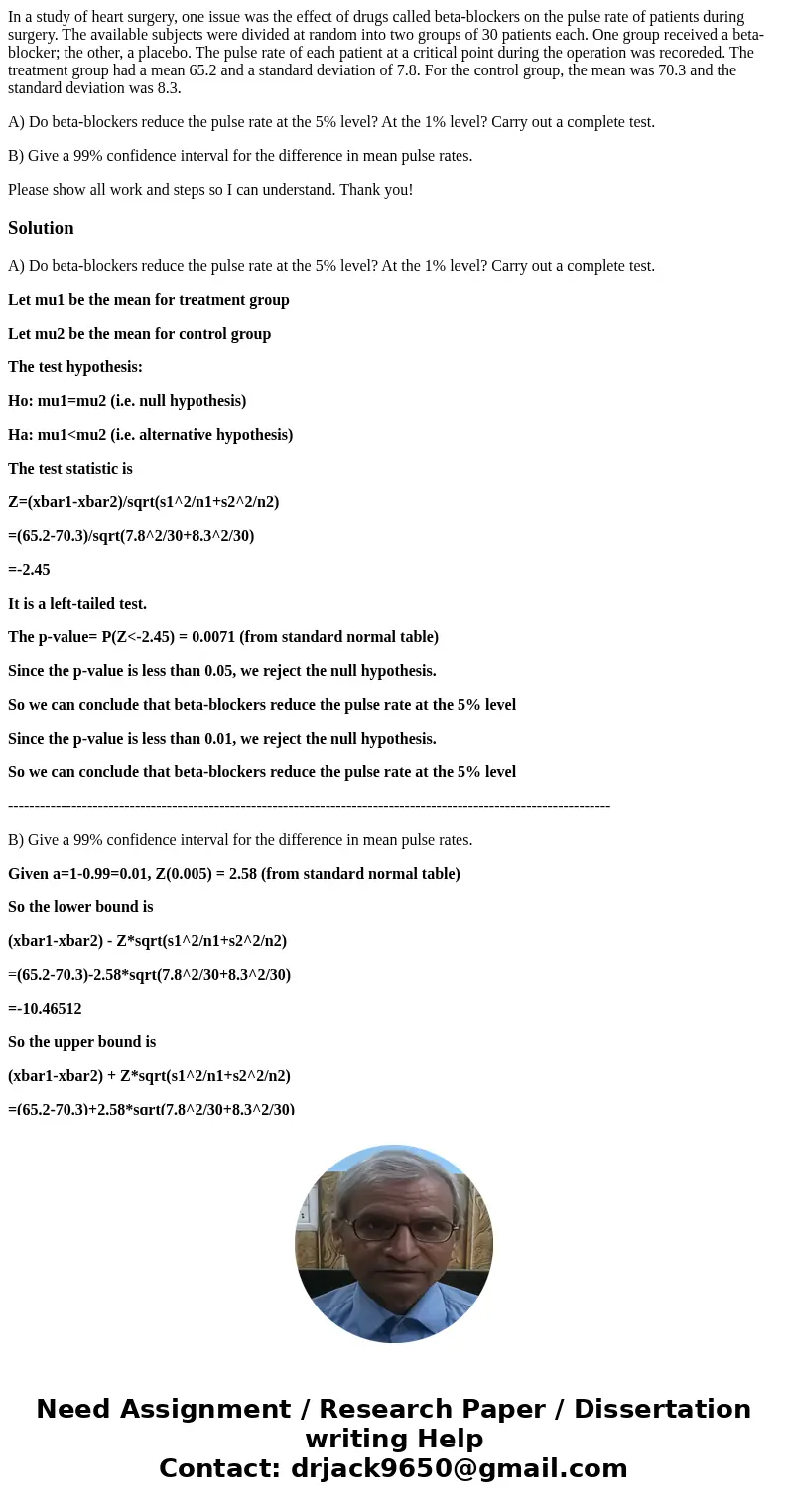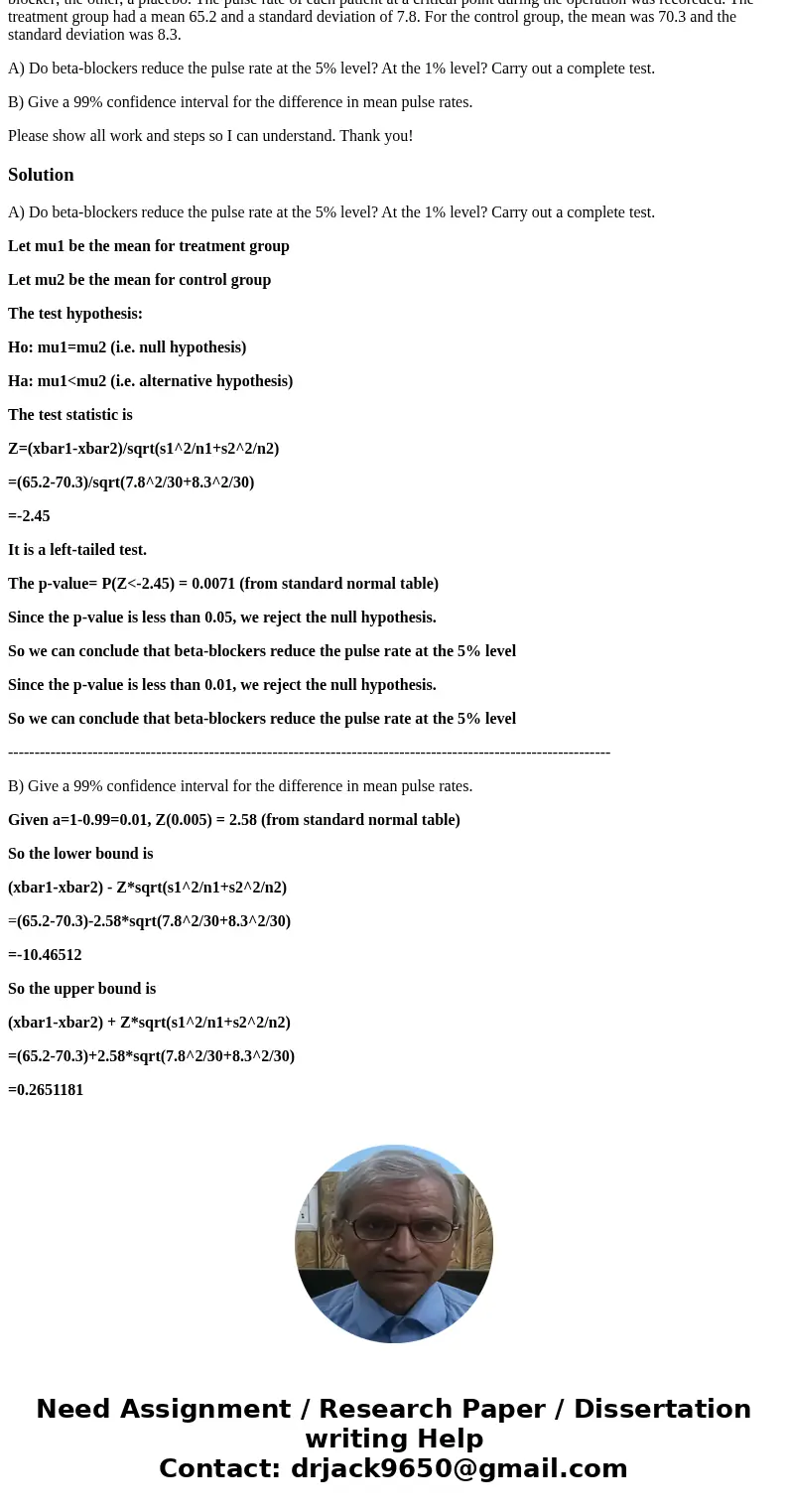In a study of heart surgery one issue was the effect of drug
In a study of heart surgery, one issue was the effect of drugs called beta-blockers on the pulse rate of patients during surgery. The available subjects were divided at random into two groups of 30 patients each. One group received a beta-blocker; the other, a placebo. The pulse rate of each patient at a critical point during the operation was recoreded. The treatment group had a mean 65.2 and a standard deviation of 7.8. For the control group, the mean was 70.3 and the standard deviation was 8.3.
A) Do beta-blockers reduce the pulse rate at the 5% level? At the 1% level? Carry out a complete test.
B) Give a 99% confidence interval for the difference in mean pulse rates.
Please show all work and steps so I can understand. Thank you!
Solution
A) Do beta-blockers reduce the pulse rate at the 5% level? At the 1% level? Carry out a complete test.
Let mu1 be the mean for treatment group
Let mu2 be the mean for control group
The test hypothesis:
Ho: mu1=mu2 (i.e. null hypothesis)
Ha: mu1<mu2 (i.e. alternative hypothesis)
The test statistic is
Z=(xbar1-xbar2)/sqrt(s1^2/n1+s2^2/n2)
=(65.2-70.3)/sqrt(7.8^2/30+8.3^2/30)
=-2.45
It is a left-tailed test.
The p-value= P(Z<-2.45) = 0.0071 (from standard normal table)
Since the p-value is less than 0.05, we reject the null hypothesis.
So we can conclude that beta-blockers reduce the pulse rate at the 5% level
Since the p-value is less than 0.01, we reject the null hypothesis.
So we can conclude that beta-blockers reduce the pulse rate at the 5% level
------------------------------------------------------------------------------------------------------------------
B) Give a 99% confidence interval for the difference in mean pulse rates.
Given a=1-0.99=0.01, Z(0.005) = 2.58 (from standard normal table)
So the lower bound is
(xbar1-xbar2) - Z*sqrt(s1^2/n1+s2^2/n2)
=(65.2-70.3)-2.58*sqrt(7.8^2/30+8.3^2/30)
=-10.46512
So the upper bound is
(xbar1-xbar2) + Z*sqrt(s1^2/n1+s2^2/n2)
=(65.2-70.3)+2.58*sqrt(7.8^2/30+8.3^2/30)
=0.2651181


 Homework Sourse
Homework Sourse